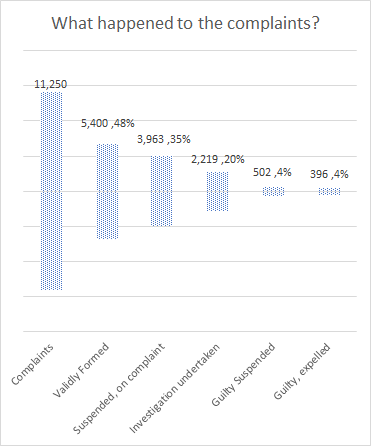From the summer of 2015, through to the summer of 2016, with time off for winter ski trips[1], the Labour Party Head Office ran a purge of the Party’s membership which otherwise grew from about 180,000 to 550,00, a growth of 206%.
This note describes the impact of the purge. These numbers do not include the 125,000 (about 25%) excluded from the leadership election in 2016 by the imposition of a freeze date, nor the tens of thousands rejected as registered supporters.
These numbers have been constructed using Christine Shawcroft’s data (see here on the CLPD site) and survey techniques[2], [3]. The data values have been normalised[4] between those categories where data is available and those where the values have been derived via survey.
We should bear in mind, that the guilty have been deemed so by the bureaucracy with some oversight from the leadership of the NEC Disputes panel; no hearing, no defence and no appeal.
[1] I dunno, I made it up, I have no idea how many of Labour’s Compliance team ski.
[2] The survey work was conducted by someone else.
[3] The sample was constructed via advertisement and opt-in. It is possible that it under-estimates those whose investigation was terminated or finished with no further action.
[4] My stats professor will be turning in is his grave. …




